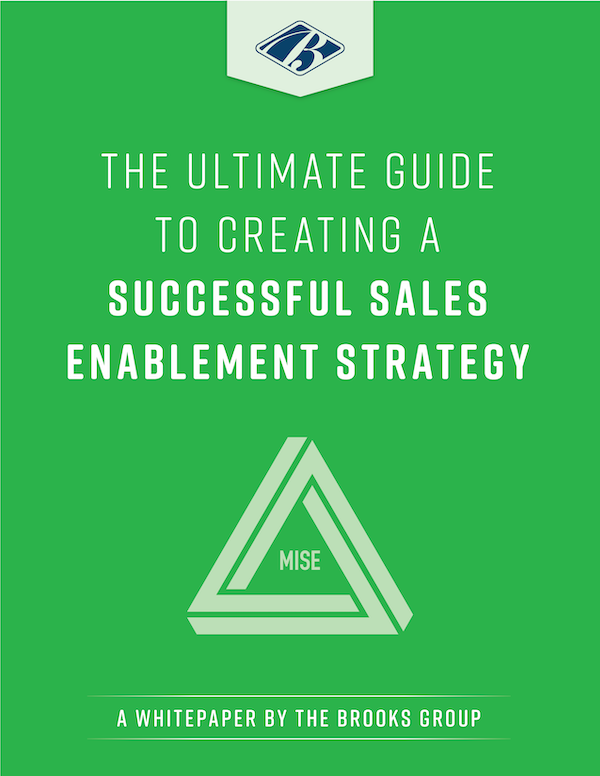The ability to close business is the ultimate determinant of how successful a salesperson is. With the pressure to hit their number, it’s no wonder that sales reps often focus their energy and attention on “closing strategies.”
This self-focused mindset can actually do more harm than good, however, as a race to the close can erode trust and turn buyers away.
The most successful salespeople close more business without applying closing strategies such as the “assumptive close” or the “Ben Franklin Close.” Instead, they follow a consultative selling, buyer-focused sales process that leads the buyer naturally to the close.
Here are 4 consultative sales tips that high-performing sales reps do with every prospect or customer to avoid having to focus their attention on closing strategies.
1. They make sure the buyer is qualified
Effective salespeople know how to use their time wisely, and that means they don’t waste their day interacting with prospects who aren’t qualified to make a purchase. Instead, they get tight on their lead qualification standards and only engage with people who have the characteristics of a qualified buyer.
The Brooks Group’s sales training programs teach sales professionals to quickly recognize whether or not a contact has the following 5 characteristics of a qualified buyer:
- Awareness of Need
- Authority and Ability to Buy or Commit
- Sense of Urgency
- Trust in You and Your Organization
- Willingness to Listen
BONUS #6 – Strategically Aligned with Your Organization
Closing strategies are useless if a buyer isn’t qualified in the first place, so coach your reps to get tight on their lead qualification process.
2. They ask the right questions
An effective questioning strategy serves two main purposes:
1. It provides a sales rep with the information they need to recommend the right solution
2. It positions the sales rep as a trusted partner instead of a product pusher
Sales reps must master open-ended questions in order to uncover a buyer’s wants and needs, along with other valuable information that will help influence the purchasing decision and lead to a close.
A consultative sales process such as IMPACT Selling teaches salespeople how to ask targeted questions, and then dig deeper to extract as much information as possible. This consultative questioning style also serves to strengthen the buyer/seller relationship by building trust, as research has shown.
Asking the right questions from the beginning sets the stage for an easy close when the sale progresses to that point.
3. They adapt their communication approach
Research from Salesforce shows that prospects are more likely to buy when they unconsciously trust and feel at ease with a salesperson.
A critical factor in building trust and rapport with a buyer is using a communication approach they’re comfortable with, although this is something many sales professionals overlook.
Highly successful salespeople understand how to quickly recognize a prospect’s buyer behavior style, and adapt their communication approach to be most effective—through phone, email, and face-to-face interactions.
By tailoring their communication and even the type of sales collateral and proof to back up claims, salespeople reduce unnecessary friction in the buying process and convert more prospects into customers.
4. They follow a buyer-focused sales process
A buyer-focused, consultative selling process puts the buyer’s needs over the needs of the sales rep. Instead of leading with a sales pitch, reps conduct sales conversations that are helpful and non-manipulative to the potential customer.
In the race to the close, many salespeople forget to put the prospect first—and end up turning potential buyers away.
By following a repeatable, buyer-focused sales process like IMPACT Selling, your sales reps will know exactly where they should be focused during each stage of the sale. They’ll understand the need to bring value to the buyer, and ways they can position themselves and your offerings as the best solution.
Approaching the sale in this way naturally leads to more closed business, without the need for closing strategies that can come off as pushy or manipulative.
Conclusion
Closing is not a destination, it is the beginning of referrals, continuous business, and long-term profitable partnerships.
With IMPACT Selling as your sales team’s operating system, each of your reps will learn to build trust and momentum in the beginning stages of the sales process. That front-loaded approach means that asking for the sale is as simple as that—asking the buyer to confirm what the relationship has been leading up to.
If you’re ready for your sales reps to take a buyer-focused approach that leads to more closed business, referrals, and selling deeper into the organization, we are here to help! Please request a private consultation below.
The Ultimate Guide to Creating a Successful Sales Enablement Strategy
A successful sales enablement strategy requires intentional planning and direction from the top levels of an organization. Map out your strategy using this comprehensive guide and set your sales effectiveness initiative up for success.





